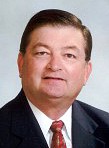
Alex Mills
By Alex Mills
Hydraulic fracturing has become a focal point of attack for many environmental groups that want to deter or ban oil and natural gas production. If they are successful, crude oil and natural gas production will decline dramatically because virtually every new well drilled in the U.S. today is fraced in some way.
Recently, the Dallas City Council modified its drilling ordinance to where the set-back provisions on drilling are so large that the industry cannot get a permit to drill. Set-back provisions are established by city councils to determine the space required between houses, schools and other structures and the location of the drilling rig. Traditionally, 300 feet has been the standard. Some cities have expanded the set-back provision as far as 600 feet. Dallas, however, increased its set-back provision to 1,500 feet.
Some folks in Denton want to ban hydraulic fracturing inside the city limits and they have petitioned the city to call an election.
Some residents of Azle and Reno, two cities just north of Fort Worth, want drilling and production activities stopped completely until answers are found as to why there have been a series of small earthquakes in the area. Small quakes would be less than 3.5 on the Richter Scale. In November and December 2013, some 20 quakes were registered in the area.
Many residents alleged that oil and gas activities caused the earthquakes. They urged the Railroad Commission to stop permitting drilling, hydraulic fracturing and water injection activities in the area immediately.
The RRC held a hearing at the Azle High School on Jan. 2 that drew an estimated 800 people seeking immediate answers.
The RRC decided that they did not have the authority to arbitrarily cease activities in the area without giving the companies due process. The commission did send staff to investigate claims, and in April hired a seismologist, a scientist that specializes in analyzing seismic activity.
Dr. Craig Pearson was one many people to testify on May 12 before the first hearing of the Seismic Subcommittee of the House Energy Resources Committee, which is chaired by Rep. Myra Crownover (R-Denton). Pearson noted that earthquakes in Texas happen frequently, but they are so small that they cannot be felt. He said it may take a year or longer to find a cause of the quakes.
Southern Methodist University along with the U.S. Geological Survey, have started to collect information from seismic monitors that have been placed near the area where the quakes occurred.
Judy Raab, with Quicksilver Resources in Fort Worth, spoke at the hearing on behalf of the industry, and she urged the commission to continue to seek a cause based on sound science.
The legislature and the commission realize that the stakes are high and that the investigation must be conducted in a rational and professional manner.
Alex Mills is President of the Texas Alliance of Energy Producers. The opinions expressed are solely of the author.





















Speak Your Mind